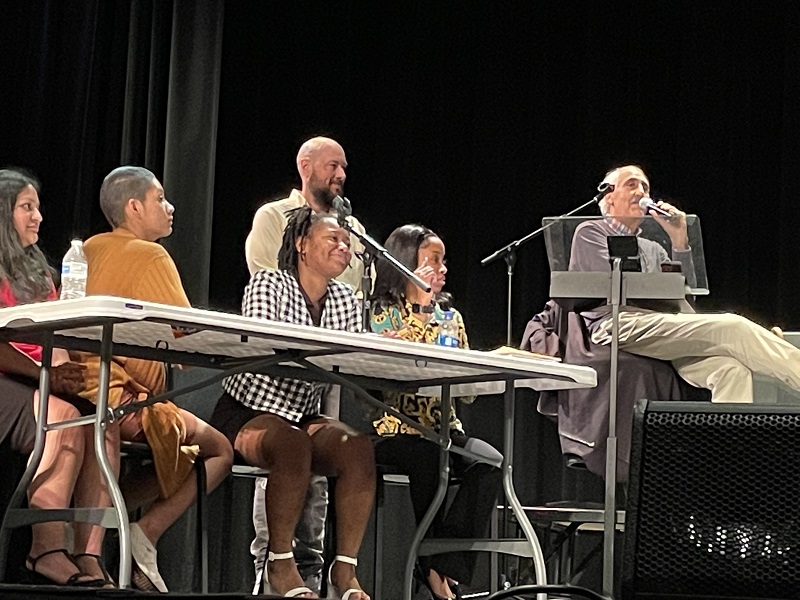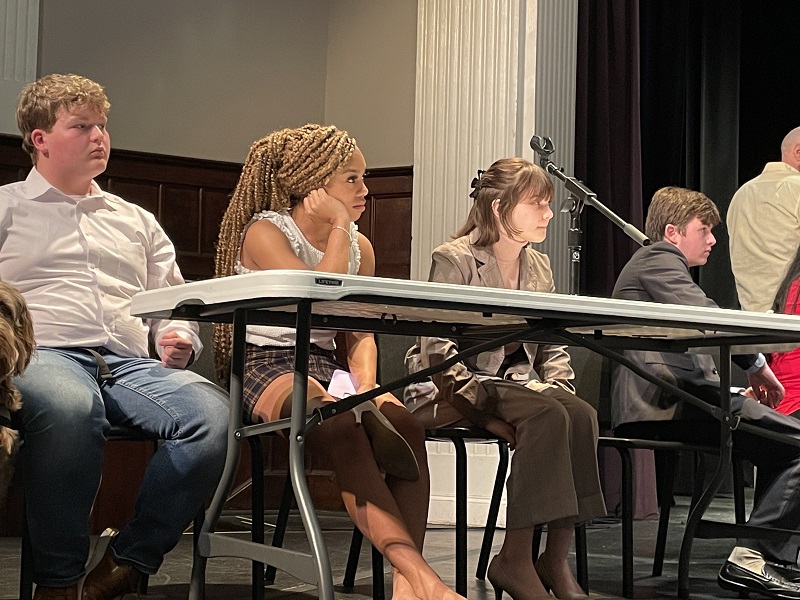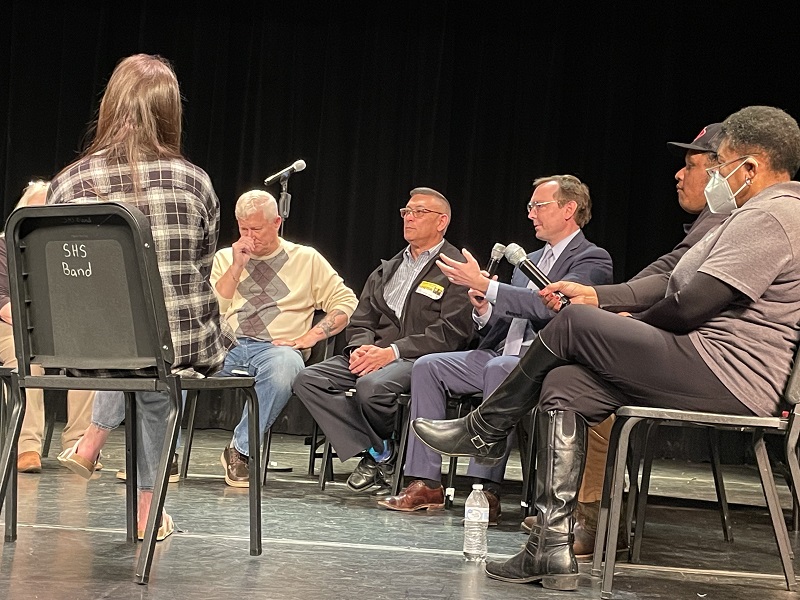
BY KARISSA MILLER
Crossroads Arts and Science Early College civics teacher Michael Williams’ two classes spent Friday afternoon participating in a mock trial in Mac Gray Auditorium.
The plaintiff and defense team presented their arguments, and the jury listened to witness testimony, reviewed video evidence and watched both sides cross-examine partygoers and others at a New Year’s Eve party hosted by Da Baby.
The Hotel was being sued for letting more people into a pool party, which led to the accidental drowning of Neil Footstrong. The plaintiff was asking for $20 million in damages on behalf of Footstrong’s estate.
 Unlike a real courtroom, the people inside the courtroom got to watch jury deliberations
Unlike a real courtroom, the people inside the courtroom got to watch jury deliberations
“How is the jury coming with their deliberations?” asked the judge, Statesville Mayor Costi Kutteh.
Members of the jury found the hotel not liable or responsible for Footstrong’s death. Some explained that he was drinking alcohol and taking prescribed painkillers.
“What would happen is if all 12 in jury did not decide on liability, there would be a hung jury and they would have to start again,” Kutteh explained.
Furthermore, he emphasized that this not a matter of guilt or innocence, but it’s a matter of civil liability so the hotel is found not responsible or responsible.
Although most of the mock trial proceeded as a real trial would, Kutteh said that instead of assigning liability to the hotel more could have been done to put responsibility on Da Baby, who was hosting the party.
Kutteh asked the jury volunteers, made up of distinguished professionals in the community, to give the students a round of applause for their efforts and all of the hard work that went into crafting their arguments.
Student Mia Smyre, who represented the Footstrong estate, said she was disappointed with the outcome, but learned the importance of working as a team. In retrospect, she said that they could have approached the case from a different angle.
Bella Keever, who played the security guard, said during the trial she did her best to answer the questions and stay calm under pressure.
“I wasn’t aware of all that goes on with the jurors and everyone that pleads their case,” Keever said, adding she liked the assignment and collaborating with others.
Williams said he wanted his students to understand the roles of everyone who works in the courtroom, as well as the importance of rules for ensuring fairness and the importance of witnesses and jurors.
“This is the first post-COVID in-person trial we have hosted since the pandemic,” Williams said. “The students wrote the trial as a creative writing experience. They also wrote their testimonies and uploaded them to Canvas to share it with others working with them.”




